How this 26-year-old from Hyderabad is inspiring urban dwellers to grow their own food
Manvitha and her team launched Homecrop to enable setting up urban gardens on rooftops and backyards.
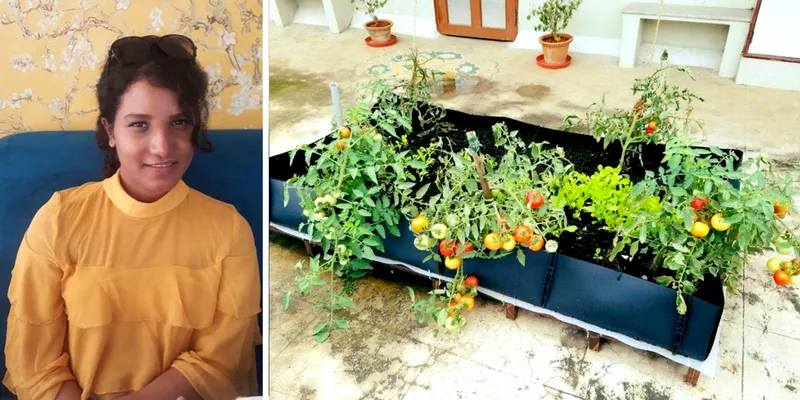
It’s not uncommon to spot stores selling food labelled ‘organic’ today, in the market. The scare of the chemicals and pesticides in your food is more real than ever before, and one can often find themselves searching for the alternative.
But are the labels any good? Can you indeed stake your trust in a mere label? If no, what can you really do about it?
These were the thoughts that were troubling a 26-year-old civil engineer and management graduate turned entrepreneur Manvitha Reddy from Hyderabad. She decided to take things in her own hands, and decided to grow food in her backyard.
HomeCrop
Manvitha began conceptualising the idea of growing her own food and numerous experiments were done in her backyard, figuring out the best way to grow one’s own vegetable needs in an urban setting. Although the idea and implementation began in the August of 2016, Manvitha and her team officially launched HomeCrop as a bootstrapped enterprise in January, 2017.
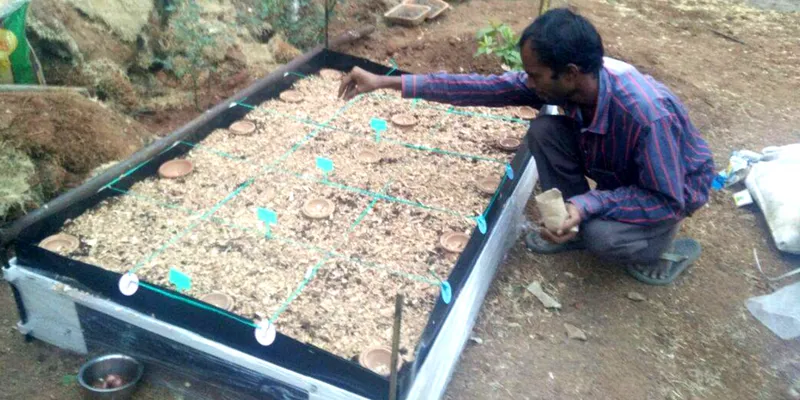
Manvitha wanted to spread the idea of people growing their own food, and wanted to help those who were keen on doing so.
“Homecrop wants to bring sustainable and healthy production of organic fruits and vegetables back to our cities. We’ve overcome lack of space by introducing modular kitchen gardens that can be easily installed on rooftops, balconies and other free areas,” says Manvitha.
The core team comprises of Manvitha, who looks into the overall operations of the enterprise. Ajay Beerla, who looks into sales and marketing, Sharmila Reddy, who looks into day-to-day operations, supply chain and execution of the orders. Krishna and Sai Krishna look into research for the plant food, pest management, and the different varieties of plants that can be grown.
Square-foot gardening
Homecrop employs the practice of square-foot gardening to design rooftop and backyard gardening spaces. In square-foot gardening, the available space is divided into small square sections to plant vegetables and herbs.
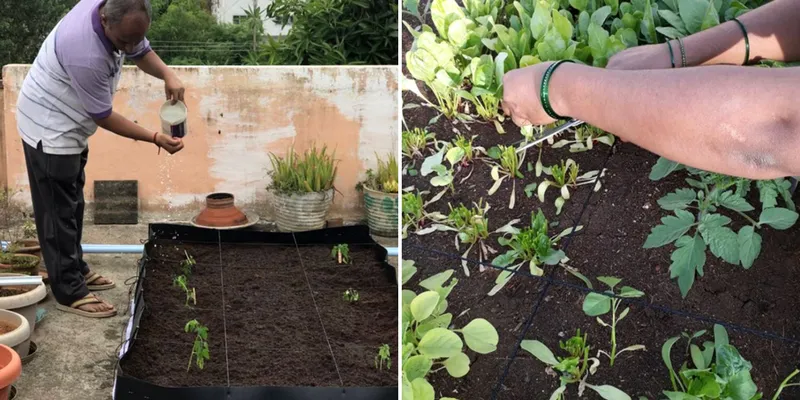
Homecrop grows in small areas of 15 square feet, where the team installs a kit that includes a PVC structure and a HIPS trough, a leak-proof support structure for trellis, a shade net, a mat for drainage, garden tools, natural growth enrichers and bio-pesticides and seeds. The team also provides remote support and complimentary visits to assist you in maintaining the space.
“Initially, when I started growing food in my backyard, I used soil and realized the many drawbacks of soil. I was unequipped to deal with the nematodes that kept cutting away at my roots,” says Manvitha.
One of the major challenges of growing with soil as medium was getting good quality soil that is not contaminated. And getting soil from a couple of hundred kilometres away didn’t make much sense. Mavitha and her team were also factoring in the load that any terrace could bear from the weight of the soil. That’s when the team started looking into alternatives for soil, and came across the concept of growing food in a soil-less medium.
The Homecrop team currently uses coco peat, which is processed coconut fibers, as the soil-less medium.
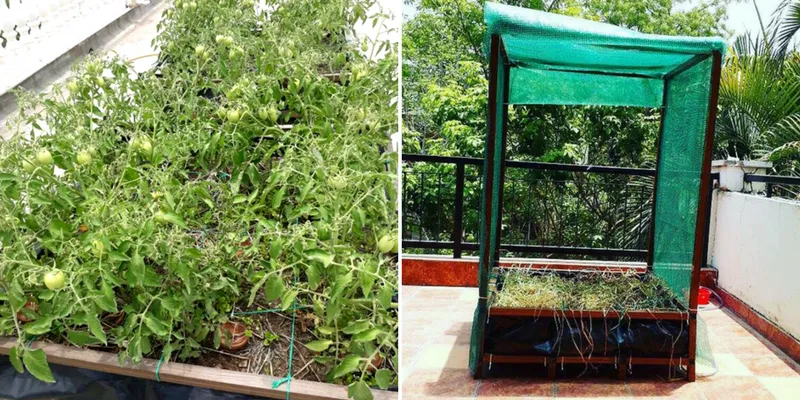
In addition to square-foot beds, the team is also exploring the options of providing grow bags, which are made of geotextile, a biodegradable, water absorbent material that makes maintenance even easier. The geotextile bag is reusable, washable and promotes better aeration. It also promotes air pruning of the roots and prevents overwatering and root rot.
These kits are designed for balconies, rooftops and backyards, and are customised for client. The pricing starts from Rs 350 for an individual custom grow kit to packages of grow kits starting from Rs 4,990.
Future plans
The past one year, Homecrop has been to cultivate nearly 5,000 square feet of area within the city and caters to over 150 customers.
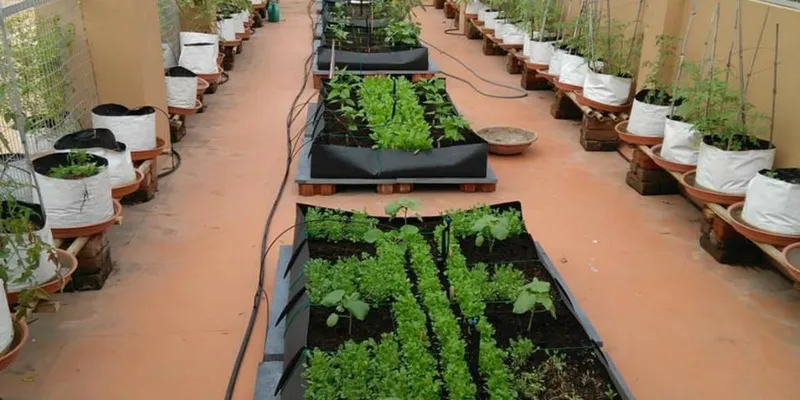
Homecrop hopes to make use of most of the urban spaces to grow food. Following this line of ideology, the team is now in plans to convert landscape spaces into ‘edi-scapes’ in various workplaces.
The team plans on working on community spaces in order to involve communities in growing food collectively. Homecrop is also launching DIY kits on online platforms, for prospective clients in other cities across the country.







